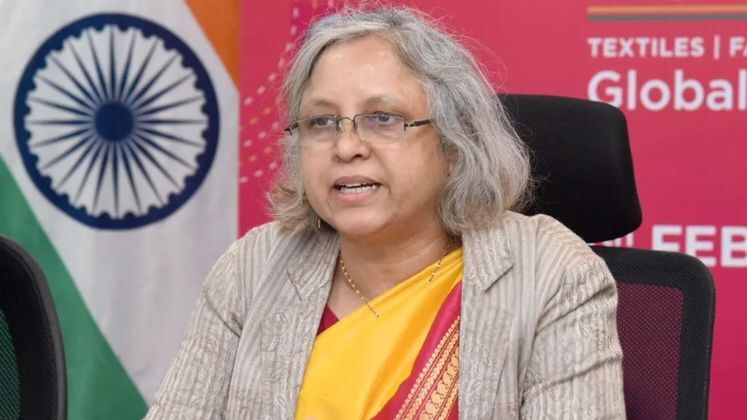
The Ministry of Textiles has carried out a comprehensive review of Minimum Support Price (MSP) operations ahead of the Kharif Cotton Season 2025–26, led by Secretary Neelam Shami Rao. The meeting brought together senior officials from all cotton-growing states, the Cotton Corporation of India Ltd. (CCI), and the Ministry of Textiles to strengthen preparedness and streamline procurement systems.
The Ministry said the exercise reflected its commitment to transparent, efficient, and farmer-centric procurement mechanisms. It emphasised that cotton remains a vital sector for millions of farmers and stressed the need for hassle-free procurement, timely payments, and digital inclusion.
As part of the strategy, 550 cotton procurement centres—the highest ever—have been set up across 11 cotton-growing regions to ensure accessibility and logistical efficiency during peak arrivals. Procurement will begin in the Northern Zone (Punjab, Haryana, Rajasthan) on 1st October 2025, followed by the Central Zone (Gujarat, Maharashtra, Madhya Pradesh, Odisha) from 15th October and the Southern Zone (Telangana, Andhra Pradesh, Karnataka, Tamil Nadu) from 21st October.
The Ministry underlined the importance of the ‘Kapas-Kisaan’ mobile app, which enables farmers to self-register, book rolling slots, and track payments in real time. States have been advised to carry out awareness campaigns to encourage registrations by 31st October. Payments will be made directly into Aadhaar-linked bank accounts via NACH, with SMS alerts issued at each stage of the process.
To strengthen grievance redressal, Local Monitoring Committees (LMCs) have been constituted at each procurement centre, while CCI has introduced dedicated WhatsApp helplines for farmers. States have also been urged to expedite the sharing of cotton cultivation land records to facilitate app-based registrations.
The Ministry reiterated its commitment to ensuring fair pricing, prompt service, and digital empowerment for all eligible cotton farmers. It noted that inter-ministerial coordination, state government support, and digital outreach would form the key pillars of its MSP strategy, aimed at transforming cotton procurement into a modern, transparent, and farmer-focused system.






